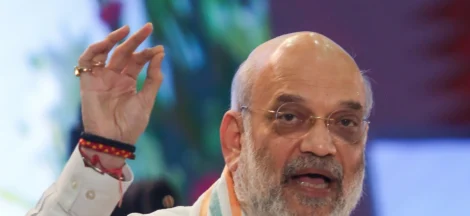India will not impose restrictions on Pakistan’s sports teams participating in multi‑nations tournaments on Indian soil, a sports ministry spokesperson confirmed on Thursday. The decision follows the mid‑April Pahalgam attack that killed 26 Indian tourists and India’s subsequent military retaliation under Operation Sindoor. Despite diplomatic tensions, officials emphasised that ensuring Pakistan’s participation aligns with Olympic Charter provisions and preserves India’s image as a future global sporting host.
The move grants approval to Pakistan’s hockey teams for the Men’s Asia Cup in Rajgir and the Junior Hockey World Cup in Chennai and Madurai. The Ministry of External Affairs and Ministry of Home Affairs have also initiated visa issuance for Pakistani athletes.
A sports ministry source stated that barring Pakistan would violate the Olympic Charter’s inclusivity rule and could jeopardise India’s ambition to host the 2036 Olympic Games. “It wouldn’t be fair or in line with international sports norms,” the source added, drawing parallels with Russia and Ukraine’s simultaneous participation despite conflict.
Hockey India welcomed the decision, pledging to abide by government directions. In contrast, Pakistan’s side awaits its own internal clearance. Officials from the Pakistan Sports Board and Pakistan Hockey Federation have indicated that final go‑ahead depends on approval from their ministries of Interior and Foreign Affairs.
Playing out in multi‑nation events avoids bilateral matches—India and Pakistan have not engaged in such series since 2008. In cricket, the current model mandates neutral venues for India‑Pakistan matches during ICC competitions, as agreed in December 2024 and applied in the men’s Champions Trophy and women’s ODI World Cup.
Economic and diplomatic observers warn that blurring the lines between political and sporting domains can offer limited respite. India’s suspension of the Indus Waters Treaty, downgrading of diplomatic ties and closure of Pakistani airspace followed the Pahalgam atrocity; similarly, Operation Sindoor saw retaliatory strikes deep into Pakistan and its administered-Kashmir region on May 7, triggering airspace and border disruptions.
Cross-border hostilities did ease after a ceasefire agreement was reached on May 10. Nevertheless, national security campaigns, including a large-scale civil defence drill named “Operation Abhyaas” on May 7, signalled preparedness in 244 districts. Despite this shadow, sports officials maintain events should proceed.
The sports ministry also stated that India’s teams abroad will adhere to the same principle by attending multi‑nation events that include Pakistan—though bilateral engagements remain non‑existent.
While Pakistan’s national hockey contingent moves toward participation, Pakistan’s women’s cricket team has already ruled out travelling to India for the 2025 Women’s World Cup in October, opting instead for a hybrid model with matches at neutral venues.
The decision serves a dual purpose: upholding India’s international sporting commitments and mitigating political backlash that may arise from excluding Pakistan. Analysts note that had the decision gone the other way, India risked censure from the International Olympic Committee and damage to its Olympic Games hosting bid.
India’s stance effectively separates politics and sport at the multilateral level, reflecting a strategy of engagement through rules‑based, international frameworks—while continuing to resist bilateral ties without formal conflict-resolution mechanisms.



